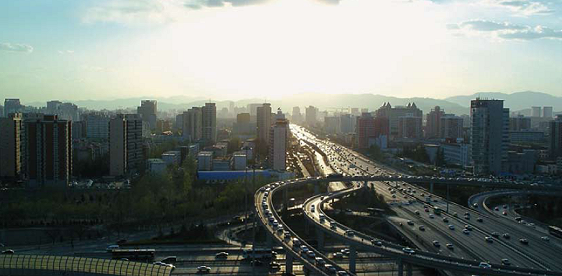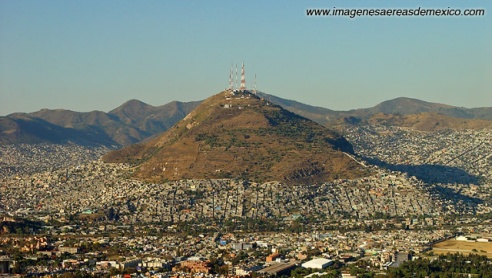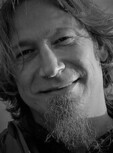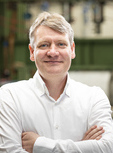The future viability of urban regions very much depends on optimized, non-polluting resource management. This comprises flows of mass and energy as well as area management and urban planning, public health, and ecosystems services.
The goal of the "City.Research" topic is to investigate the interactions between natural and anthropogenic processes in urban environments. By developing sustainable (urban) development concepts and appropriate technical and methodological tools, research in this topic contributes to strengthening urban systems against the impacts of climate change and natural disasters and reducing anthropogenic environmental burdens.
Since 2008, more than half of the global population lives in cities. Worldwide, cities are a dominant factor in material and energy flows, which significantly influence climate development and the environment. Conversely, cities are also notably affected by their surroundings and the regional and global climate through these flows. The future viability of urban systems depends on the sustainable management of these material and energy flows in both directions.
Activities for sustainable development in the context of Local Agenda 21 processes have already highlighted the key role of cities as action systems, as a large portion of national strategies must be translated into locally specific strategies and measures at this level. Aligning all actions within a local strategic framework and developing and systematically analyzing sustainable urban development scenarios will be critical to success.
Our expertise is divided into the following aspects:
- City.Planning.Building -> For resilient, sustainable, and livable cities
- City.Climate -> For social justice
- City.Ecology -> Holistic sustainability considerations and biodiversity
- City.Resources.Cycles -> Comprehensive systemic thinking
How nocturnal cold air flows cool cities
only available in German
Dieser TV-Beitrag wurde in der Wissenschaftssendung „W wie Wissen“ (ARD) ausgestrahlt. Er befasst sich mit nächtlichen Kaltluftströmungen die in relativ windstillen und wolkenfreien Sommernächten auftreten. Dabei fließt kältere Luft aus dem Umland in das Stadtgebiet hinein und sorgt für eine willkommene Abkühlung der sich tagsüber aufheizenden Stadt.
Am Beispiel von Untersuchungen für die Stadt Mannheim wird erläutert, wie durch eine überlegte Bebauung und der Anordnung von Freiflächen, Korridore für das Einfließen der Kaltluft geschaffen werden können, sodass die nächtliche Abkühlung möglichst vielen Stadtbewohnern zugutekommt.
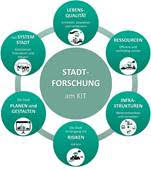
An Overview of KIT Urban Research
link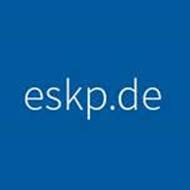
more info: https://www.urban.kit.edu/english/index.php
Spokesperson Topic Urban.Science


Institut für Regionalwissenschaft
Gebäude 10.50
Kaiserstraße 12
76131 Karlsruhe
Deputy Spokesperson Topic Urban.Science


Institute of Concrete Structures and Building Materials (IMB)
Materials Testing and Research Institute, MPA Karlsruhe
Competence Center for Material Moisture, CMM Karlsruhe
KIT - Karlsruhe Institute of Technology
Bldg. 50.31
Gotthard-Franz-Str. 3
76131 Karlsruhe
.jpg)
